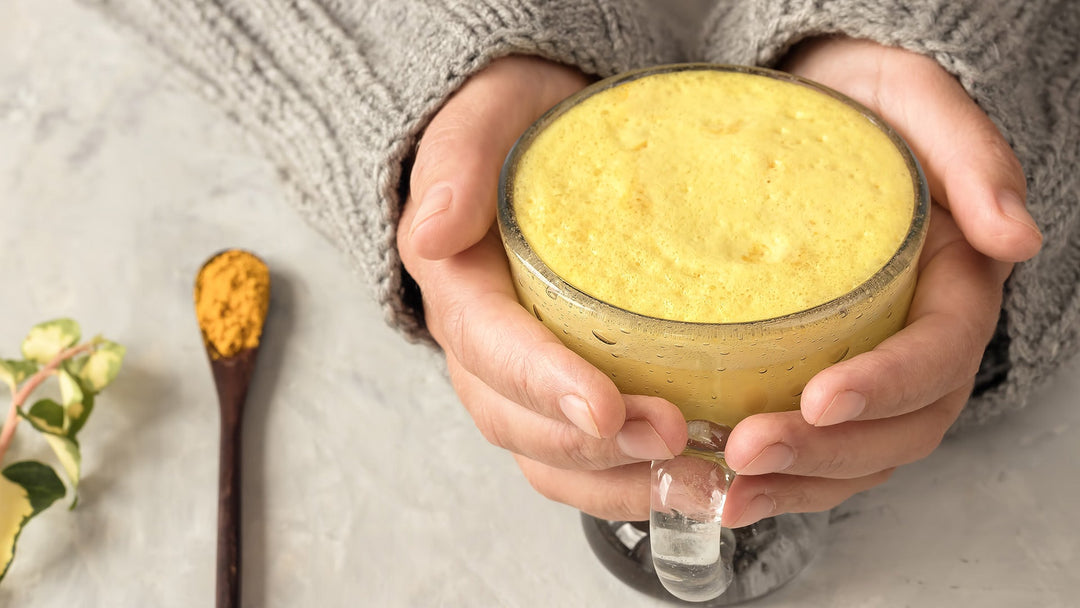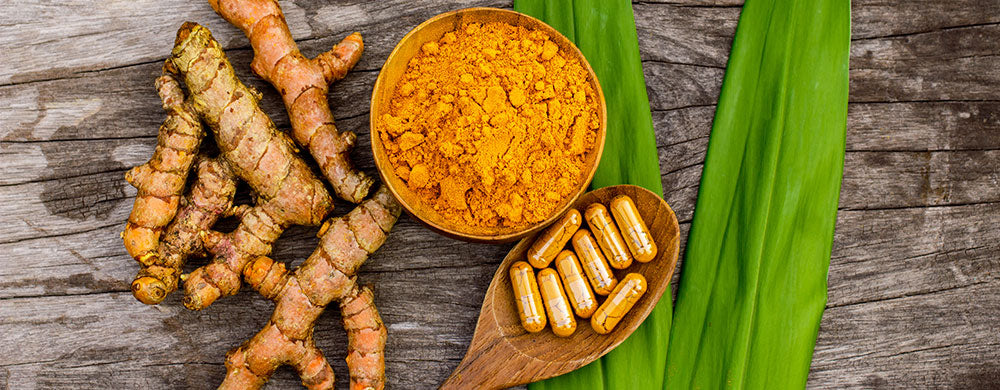High blood pressure – an often undetected danger

High blood pressure is the most common cause of cardiovascular disease and premature death worldwide. (1) But why does hardly anyone talk about this underestimated health risk? Can high blood pressure be prevented naturally? We provide information on what exactly high blood pressure is, what role diet plays and what measures can be taken to lower blood pressure.
Table of contents
- What is blood pressure?
- High blood pressure explained and normal values
- Causes of high blood pressure
- High blood pressure symptoms: How do I know if I have hypertension?
- Nutrition and high blood pressure
- Can weight loss lower blood pressure without medication?
- Sport and high blood pressure
- Medication for blood pressure
- Conclusion
- Sources
What is blood pressure?
Blood pressure describes the pressure of the blood on a blood vessel. This is made up of the systolic and diastolic blood pressure. Both are given in mmHg. Around 1 billion people worldwide are affected by high blood pressure. The number of unreported cases is unknown. The actual numbers are very likely much higher. (2) But what exactly is high blood pressure?
High blood pressure explained and normal values
If blood pressure values are higher than the normal range, this is called high blood pressure. This is also known as hypertension. Normal and healthy blood pressure is below 130 mmHg systolic and below 85 mmHg diastolic. Optimal values would be below 120 mmHg systolic and below 80 mmHg diastolic. You can see these individual stages of high blood pressure in the table below.
What are the causes of high blood pressure?
The causes of high blood pressure range from genetic factors to eating habits and being overweight. There are also other factors that promote high blood pressure. These include smoking, stress and lack of exercise. It is estimated that 50-60% of those affected are salt-sensitive. This means that salt consumption increases blood pressure in these people. Why? Put simply, the sodium contained in table salt binds water in the body. This increases the pressure in the blood vessels and the heart has to work harder. As a result, blood pressure rises.
This means that they are sensitive to salt or sodium chloride. This predisposition is most likely genetic. Since our current diet is very high in salt, it is difficult for those affected to consume small amounts of salt. Why? Almost every processed food in the supermarket contains another ingredient in addition to sugar and fat: salt. And in large quantities.

High blood pressure symptoms: How do I know if I have hypertension?
As a rule, high blood pressure is not consciously recognized by those affected. High blood pressure can manifest itself in the following ways:
- dizziness
- panic
- Shortness of breath
- fatigue
- nervousness
- Sleep disorders
Since these symptoms are not really specific, the only thing that helps is to measure your blood pressure yourself. The best thing to do is to go to the doctor. Alternatively, if you want to check your blood pressure quickly at home, you can also use a blood pressure monitor. This is best done with an experienced second person to help you. Ideally, you should measure your blood pressure several times to avoid outliers in the measurement. This will give you a good feeling for the range in which your blood pressure is daily. The more often you measure your blood pressure, the more accurate the average value you determine will be.
What are the consequences of high blood pressure?
 The complications of high blood pressure include cardiovascular disease. Large-scale studies have shown that high blood pressure is a risk factor for heart failure, chronic kidney disease, coronary heart disease and stroke. (8) It can also cause damage to the retina and, in the worst case, kidney failure. It is clear that it is much more than just high blood pressure. The consequences of hypertension are far-reaching and affect the whole body. In terms of health, untreated high blood pressure can lead to serious and sometimes fatal complications. Given the high number of people affected worldwide, it is easy to imagine the burden that high blood pressure places on the health system.
The complications of high blood pressure include cardiovascular disease. Large-scale studies have shown that high blood pressure is a risk factor for heart failure, chronic kidney disease, coronary heart disease and stroke. (8) It can also cause damage to the retina and, in the worst case, kidney failure. It is clear that it is much more than just high blood pressure. The consequences of hypertension are far-reaching and affect the whole body. In terms of health, untreated high blood pressure can lead to serious and sometimes fatal complications. Given the high number of people affected worldwide, it is easy to imagine the burden that high blood pressure places on the health system.
Changes in the eyes and kidneys as first signs
Changes in the eyes and kidneys are often the first signs of high blood pressure, as high pressure in the blood vessels places particular strain on these organs. In the eyes, high blood pressure-induced damage to the small blood vessels of the retina can lead to visual disturbances, such as blurred vision or flickering in the field of vision. Some people also notice increased sensitivity to light or dark spots in the field of vision. At the same time, the kidneys can be damaged by long-term pressure, which can manifest itself in increased protein levels in the urine (proteinuria) or increased urination at night. Regular check-ups are crucial to detecting these early signs. This includes blood pressure measurements during doctor visits and eye examinations by an ophthalmologist to detect retinal damage at an early stage. In addition, checking kidney function and urine values is important in order to diagnose and treat any kidney damage in a timely manner. Early detection and timely treatment of high blood pressure can help prevent serious complications in the eyes and kidneys and maintain long-term health. (9)
Does a healthy diet help lower blood pressure?
 We often hear about the connection between diet and high blood pressure. In fact, it has been scientifically proven that a so-called DASH diet can help with high blood pressure. (3) The DASH diet stands for Dietary Approaches to Stop Hypertension. In German: nutritional therapeutic approaches to stop high blood pressure. The DASH diet focuses on the consumption of fruit, vegetables, low-fat dairy products and a low proportion of saturated fatty acids. The DASH diet therefore has strong parallels to the Mediterranean diet, which, according to the well-known PREDIMED study, has a positive effect on cardiovascular health. (4) The DASH diet can therefore actually lower blood pressure through nutritional measures.
We often hear about the connection between diet and high blood pressure. In fact, it has been scientifically proven that a so-called DASH diet can help with high blood pressure. (3) The DASH diet stands for Dietary Approaches to Stop Hypertension. In German: nutritional therapeutic approaches to stop high blood pressure. The DASH diet focuses on the consumption of fruit, vegetables, low-fat dairy products and a low proportion of saturated fatty acids. The DASH diet therefore has strong parallels to the Mediterranean diet, which, according to the well-known PREDIMED study, has a positive effect on cardiovascular health. (4) The DASH diet can therefore actually lower blood pressure through nutritional measures.
You can get a detailed overview of the DASH diet in the following graphic.

In addition, general salt consumption should be reduced and preferably fewer processed foods should be consumed. Alcohol should also only be consumed in moderation. Further studies have shown that magnesium can lower blood pressure. (5) The exact mechanism is not yet known. This could also explain why the DASH diet or Mediterranean diet can also have a positive effect on blood pressure. These diets are both rich in magnesium-containing foods. In addition, studies have shown that many secondary plant substances such as flavonoids can have a positive effect on blood pressure. (6)
The general intake recommendations of the DASH diet are:
- Vegetables: 5 servings a day
- Fruit: 5 portions a day
- Carbohydrates: 7 servings per day
- Low-fat dairy products: 2 servings per day
- Lean meat: 2 or fewer servings per day
- Nuts and seeds: 2 – 3 servings per week
The recommended vegetables include mainly green leafy vegetables such as kale, broccoli and spinach. Ideally, whole grains should be consumed, such as whole wheat bread, oats or millet. When it comes to fruit, you should choose fruit with a low glycemic index. In addition, the consumption of beans and pulses is recommended. Healthy fats include olive oil, avocado, nuts, hemp seeds, linseed and omega-3-rich oil. In addition, the consumption of vegetable protein from soybeans is recommended.
Can weight loss lower blood pressure without medication?
The short answer: Yes. Studies show that blood pressure can be normalized in many sufferers if excess weight is reduced. (7) Why? There is less pressure on the blood vessels. Weight reduction also brings with it other positive side effects, such as a lower risk of diabetes and lipid metabolism disorders. There is a close connection here, because one component of metabolic syndrome is hypertension, i.e. high blood pressure. 
Which medications can lower blood pressure?
If the blood pressure cannot be reduced through natural measures such as a change in diet, a doctor will prescribe blood pressure lowering medication. The most well-known blood pressure lowering medications include: ACE inhibitors (angiotensin-converting enzyme inhibitors), beta-blockers, diuretics, calcium antagonists, sartans (angiotensin antagonists). You can discuss with your doctor which medication is best suited for you. 
Conclusion:
High blood pressure is the biggest risk factor for cardiovascular disease and premature death. It is estimated that 1 billion people worldwide are affected by high blood pressure. The number of unreported cases is very likely much higher. In addition to blood pressure-lowering medication, a change in diet can also be helpful. Salt intake should be reduced. To do this, it is usually necessary to only consume highly processed foods in moderation. It is also important to aim for a normal weight and lose excess weight. A lot of exercise and sport can also be very helpful in this context. Nutritional advice from a nutritionist can also provide further clarity about which foods to pay attention to. The holistic, natural treatment of high blood pressure includes not only a change in diet, but also other areas of life such as physical activity and stress reduction. A doctor should be consulted about the medicinal treatment of high blood pressure.


